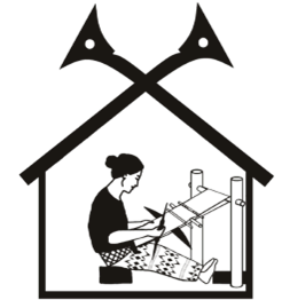Our journey, Vision, Mission & Values
Our Journey
What began in 2008 as a small livelihood initiative by the North East Network (NEN) with just seven dedicated weavers has since evolved into a thriving movement. Now managed by Nenterprise, a Public Charitable Trust registered in 2017, Chizami Weaves is advancing women’s empowerment, community development and preserving cultural heritage.
Annually, we engage 500–600 artisans from 16 villages across Phek District, providing them with sustainable livelihoods and a platform to showcase their weaving skills. Since the inception of Chizami Weaves, we've supported over 1,000 artisans overall.
We believe that when women are economically independent and receive respect and dignity for their work, their roles and recognition within their communities are strengthened. At the heart of all our efforts is a deep respect for local knowledge and the dignity of every artisan.
Our Vision, Mission & Values
We envision a future where women are economically empowered, live with dignity, and lead the way in building resilient, thriving communities.
Our mission is to uplift marginalized and vulnerable groups—especially women—by fostering sustainable livelihoods that secure their social, cultural, ecological, and economic rights.
We are committed to empowering rural women artisans by equipping them with the skills, resources, and opportunities they need to thrive. Through our integrated approach, we focus on the following:
-
Support sustainable income generation by reviving and promoting traditional textile weaving and handicraft skills. Provide vocational training programmes to help women develop marketable skills and achieve financial independence.
-
Strengthen women’s leadership through education, exposure, and social development initiatives, helping them become change agents within their communities.
-
Promote environmentally responsible practices such as the use of natural fibers (like organic cotton), plant-based dyes, and low-impact production methods that respects both people and the planet.
-
Preserve and celebrate indigenous knowledge and craft skills by documenting traditional techniques and cultural narratives, ensuring their continuity for future generations.
-
Facilitate comprehensive access to vital resources—such as artisan cards, bank accounts, healthcare, and social security—and provide essential information and education to support women’s holistic well-being.
- Work collaboratively with local communities to build strong, inclusive ecosystems that support long-term development and resilience.
Our Values
At Chizami Weaves, our work is guided by:
Quality
Ensuring high craftsmanship, durability, and consistency in every product while maintaining authenticity of traditional techniques.
Respect for local Knowledge & Skills
We deeply value the traditional weaving skills and cultural wisdom passed down through generations. We recognize the richness of local crafts skills not only as a source of livelihood but as a vital expression of identity, heritage, and resilience.
Dignity
Every artisan is treated with fairness, respect, and dignity. We are committed to fostering a supportive environment where their hard work is recognized, their voices are heard, and their contributions are valued.
Integrity
We uphold transparency and fairness in all our practices, from sourcing raw materials to pricing our products. Our commitment to integrity builds trust with our artisans, customers, and partners.
Accountability and Transparency
We take responsibility for our actions and ensure openness in our processes, fostering trust through honest communication, fair wages, and shared decision-making.
Inclusivity
We actively work with diverse categories of women and girls, including widows, single women, women with disabilities, women and young girls of all age groups. We are dedicated to creating an environment where all voices, especially those of women and vulnerable groups, are heard, valued, and celebrated.
Sustainability
We promote environmental stewardship, economic justice, and social well-being for all involved with Chizami Weaves. We strive to minimize our environmental footprint through eco-friendly production methods; create fair and dignified livelihoods, and foster community resilience by building local capacity and strengthening traditional skills and knowledge systems.
